Dealing with water damage in your home can be a stressful and overwhelming experience. One of the most pressing concerns is whether it is safe to continue living in your house with water damage.
Water damage can pose several risks to your health and safety. It can cause structural damage to your home, increase the likelihood of electrical hazards, and promote the growth of mold and mildew.
In this article, we will explore the potential dangers of water damage, assess the extent of the damage, and highlight the importance of addressing mold growth and electrical hazards swiftly. We will also discuss the restoration and remediation processes involved in mitigating the effects of water damage.
Water Damage Safety: Can You Sleep in Your Home?
Key Takeaways
- Water damage can pose serious risks to your health and safety.
- It is crucial to assess the extent of the damage and address any mold growth and electrical hazards.
- The restoration and remediation process should be handled by professionals.
- If you are uncertain about the safety of your home, consult with experts for a comprehensive evaluation and repairs.
Understanding the Dangers of Water Damage
Water damage in residential properties poses significant risks to both the property and its occupants. While water damage is commonly associated with structural damage and the risk of mold growth, there are several other health hazards and safety concerns that you need to be aware of.
Water damage risks: One of the main risks associated with water damage is the damage to the structural integrity of your home. Water damage weakens wooden beams, floorboards, and walls, making them susceptible to collapse or other forms of damage. Additionally, flooded electrical systems and appliances can pose a significant risk of electrocution or fire.
Health hazards of water damage: Water damage can cause serious health hazards, particularly for individuals who have allergies or compromised immune systems. The growth of mold, mildew, and other fungi can cause respiratory problems, including asthma and other allergic reactions. Water damage can also lead to the growth of bacteria, which can cause infections and other health problems.
Safety concerns with water damage: In addition to the health hazards, water damage can also cause safety concerns, such as slippery floors, weakened structures, and contaminated water. Floodwater may contain harmful chemicals, sewage, and other hazardous substances.
It is important to address water damage promptly to avoid these risks. Identifying the source of the water, assessing the extent of the damage, and seeking professional assistance is crucial in mitigating the potential dangers and health hazards of water damage.
Assessing the Extent of Water Damage
When evaluating water damage in your home, it is essential to understand the common signs and potential structural issues that may arise. Signs of water damage may include water stains, peeling or bubbling paint, or a musty smell in your property. Additionally, you may notice warped or buckled flooring, or visible cracks on walls and ceilings.
If you suspect water damage, it is crucial to address the issue promptly to avoid further structural damage. If left untreated, water damage can compromise the integrity of your home’s foundation and lead to expensive repairs. In severe cases, structural damage from water can even render your home unsafe to inhabit.
It’s crucial to involve a professional when assessing the extent of water damage in your home. A professional assessment will provide a comprehensive evaluation of the damage and necessary repairs. Often, the damage is more extensive than what is visible to the naked eye. A professional can identify hidden leaks and potential mold growth that may be present but not immediately visible.
It’s important to take the necessary steps to address water damage promptly to minimize the risk of structural damage. Remember, addressing water damage requires professional expertise, so consult a professional for a thorough evaluation and recommendations.
Mold and Mildew: A Concern in Water-Damaged Homes
Water damage can lead to the growth of mold and mildew, which poses significant health risks to you and your family. Mold and mildew thrive in damp and humid environments, making water-damaged houses a prime breeding ground.
Exposure to mold spores can trigger allergies, respiratory problems, and other health issues, particularly for those with weakened immune systems or pre-existing respiratory conditions. Mold growth can also cause structural damage to your home, leading to costly repairs.
It is crucial to address mold growth promptly by hiring a professional to assess and remediate the issue. This will not only protect your health but also prevent further damage to your property.
Electrical Hazards in Water-Damaged Properties
Water damage can cause numerous hazards in your home, including electrical hazards. Water can conduct electricity, and any unprotected electrical connections or devices can quickly become a safety hazard. According to the Electrical Safety Foundation International, exposure to moisture or water leads to more than 20% of electrocutions in the US each year.
One of the most significant electrical safety hazards associated with water damage is electrical shock. If your home has sustained water damage, you should avoid touching any electrical appliances or outlets until you have ensured that they are safe to use.
Additionally, water damage can increase the risk of electrical fires. Water can corrode electrical connections, leading to short circuits and tripped breakers that can cause a fire. In fact, electrical fires caused by water damage are one of the leading causes of electrical fires in residential properties.
| Electrical Safety Tips for Water-Damaged Properties |
|---|
| Do not enter standing water if there is any chance it may be in contact with an electrical outlet, wire, or device. |
| Do not attempt to repair or use electrical appliances, outlets, or wiring that has come into contact with water. |
| Turn off the power supply to your home before entering any flooded areas. |
| Do not use any electrical appliances, including your heating and cooling systems, until they have been professionally inspected and deemed safe. |
If you suspect electrical hazards following water damage in your home, it’s crucial to contact a professional electrician immediately. They can inspect your home’s wiring and identify any potential hazards, repairing any issues quickly and efficiently.
Addressing Water Damage: Restoration and Remediation
When it comes to water damage, time is of the essence. The longer you wait, the more extensive the damage can become, leading to potential structural issues and health hazards. It’s crucial to address water damage promptly to minimize the risk of further damage and ensure a safe living environment.
If you’re dealing with water damage, the restoration and remediation process can be complex and time-consuming. It’s crucial to seek professional remediation services to ensure a thorough and efficient restoration process.
| Step | Description |
|---|---|
| Assessment | The first step involves assessing the extent of the damage, including any potential safety concerns and structural issues. |
| Water Extraction | Removing any standing water is crucial to prevent further damage, mold growth, and potential health hazards. |
| Drying and Dehumidifying | The next step involves thoroughly drying and dehumidifying the affected area to prevent additional water damage and mold growth. |
| Cleaning and Sanitizing | The remediation team will clean and sanitize the area thoroughly to remove any potential contaminants, bacteria, or mold. |
| Restoration | The final step involves restoring the affected area to its pre-damage condition, including making any necessary repairs or replacements. |
It’s essential to keep in mind that water damage restoration and remediation require specialized equipment and expertise. Attempting to address water damage on your own could lead to further damage and health hazards. Seeking professional water damage cleanup services is the best way to ensure a safe and efficient restoration process.
Don’t hesitate to contact a professional remediation team if you’re dealing with water damage in your home. Taking action promptly can help prevent further damage, minimize risks to your health, and ensure a safe living environment.
Conclusion
In conclusion, it is crucial to prioritize your safety when dealing with water damage in your home. While it may be tempting to tough it out and stay in your home, assessing the risks associated with water damage is critical. Mold growth is a genuine concern, and the potential electrical hazards can be life-threatening. It is essential to take swift action and seek professional assistance from a water damage restoration and remediation company.
Proper remediation services can help ensure your home is safe to live in and prevent long-term damage and health hazards. If you are uncertain about the safety of your home, consult with professionals for a comprehensive evaluation and necessary repairs.
FAQ
Can you sleep in a house with water damage?
It is not advisable to sleep in a house with water damage. Water damage can pose various risks to your health and safety. It is crucial to address the issues associated with water damage before considering staying in the affected property.
What are the risks of water damage?
Water damage can lead to several risks, including structural damage, mold and mildew growth, and electrical hazards. These risks can compromise the integrity of your home and pose health and safety concerns.
How can you evaluate the extent of water damage?
To assess the extent of water damage, look for signs such as discoloration on walls or ceilings, a musty odor, or visible mold growth. It is also important to inspect hidden areas, such as behind furniture or under carpets, for any dampness or water stains.
What should be done about mold and mildew in water-damaged homes?
Mold and mildew in water-damaged homes are potential health hazards. It is crucial to address mold growth promptly. Consult with a professional mold remediation service to properly remove and mitigate the risk of mold spores spreading throughout your home.
What are the electrical hazards in water-damaged properties?
Water damage can result in electrical hazards, including the risk of electrical shock and fire. When water comes into contact with electrical systems or appliances, it can cause electrical malfunctions, short circuits, or even electrocution. Always ensure that the power is turned off before entering a water-damaged area and consult with an electrician to assess and address any electrical issues.
How should water damage be addressed?
It is crucial to seek professional assistance for water damage restoration and remediation. Professionals have the expertise and equipment to effectively remove excess water, dry the affected areas, and prevent further damage. Prompt action is necessary to minimize the potential risks and restore your home to a safe living condition.
Denver Clean-up & Restoration Services
With over 150 years of combined experience, the Colorado Cleanup Services, Inc. team has the knowledge, skill, and commitment necessary to handle any emergency cleanup services you may require. From flood and fire damage restoration to sewage backup, and coronavirus cleanup services in Denver, CO, you can always turn to us when you need deep, disinfecting cleaning for your home or business.
Family-owned and operated, our cleaning company is proud to provide the services of trained and certified technicians to all our clients. Our impressive team knows what it takes to return damaged properties to their original condition with the highest level of professionalism. Don’t settle for anything less when you require high-quality disaster recovery services. Our team is available 24 hours a day, 7 days a week to ensure you receive the help you need when you need it give us a call: 303-237-4406.







